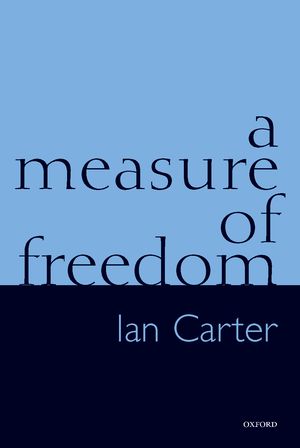
It is often said that one person or society is 'freer' than another, or that people have a right to equal freedom, or that freedom should be increased or even maximized. Such quantitative claims about freedom are of great importance to us, forming an essential part of our political discourse and theorizing. Yet their meaning has been surprisingly neglected by political philosophers until now.
Ian Carter provides the first systematic account of the nature and importance of our judgements about degrees of freedom. He begins with an analysis of the normative assumptions behind the claim that individuals are entitled to a measure of freedom, and then goes on to ask whether it is indeed conceptually possible to measure freedom. Adopting a coherentist approach, the author argues for a conception of freedom that not only reflects commonly held intuitions about who is freer than who but is;also compatible with a liberal or freedom-based theory of justice.